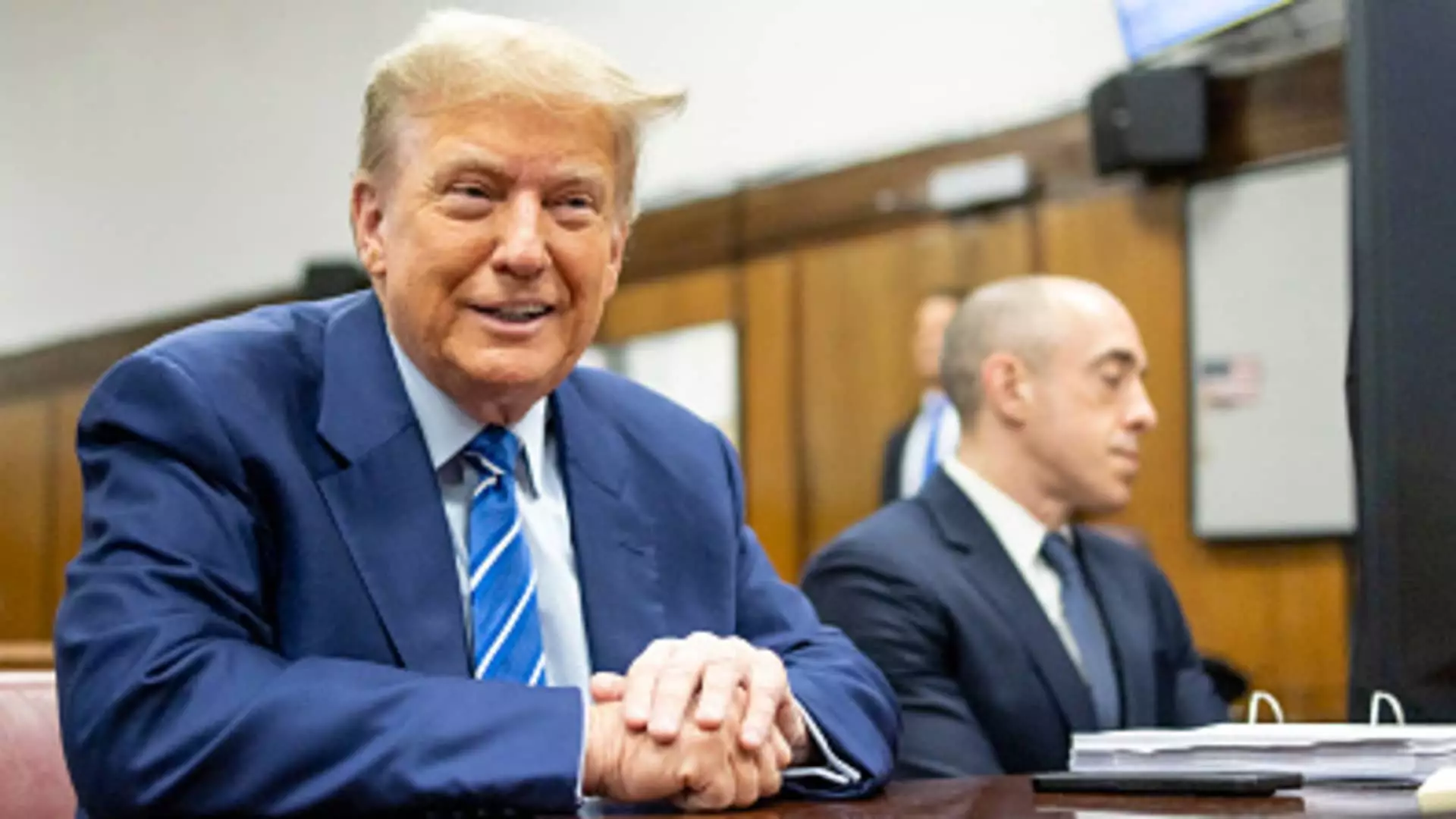In a significant twist to Donald Trump’s ongoing legal battles, a New York judge has decisively delayed the sentencing of the President-elect in relation to the hush money case that has captivated public interest. The ruling issued by Judge Juan Merchan not only postpones an impending sentence initially scheduled for next week but also opens a window for Trump’s defense team to submit motions aimed at completely dismissing the charges. This development highlights the complexities inherent within the American justice system, particularly concerning high-profile figures like Trump who command vast media attention and public scrutiny.
The decision to delay stems from a request made by the Manhattan District Attorney’s Office, which anticipates that Trump’s legal team will mount a vigorous challenge regarding the validity of the charges. By pausing the sentencing, the court has effectively acknowledged the legal strategies often employed in cases involving prominent defendants. This postponement may lead some observers to speculate whether it is a mere procedural pause or an indicator of deeper issues within the prosecution’s case against Trump.
Trump’s attorneys, including Todd Blanche, recently posited that the charges should be tossed out on constitutional grounds. They claim that President-elect Trump enjoys the same immunities as a sitting president, arguing that the legal proceedings against him are unwarranted and politically motivated. Blanche’s assertion raises critical questions about the separation of powers and the extent to which a president or president-elect can be held accountable for actions taken while in office. Such arguments tap into a broader debate about the limitation of legal repercussions for those in high offices, a subject that has sparked robust discussions amongst legal experts and politicians alike.
The notion of presidential immunity has been historically contentious, with various incidents throughout U.S. history challenging the boundaries of legal accountability for leaders. The defense’s strategy may not solely rest on this claim of immunity; it also signals a significant shift in approach, suggesting a potential effort to redefine legal precedents regarding presidential conduct.
The response from Trump’s transition team has been predictably robust, framing the court’s decision as a victory against what they term “sham lawfare.” This language reflects a familiar narrative employed by Trump and his allies that brands judicial challenges as illegitimate attacks on the political process. By dismissing the allegations as fraudulent attempts to undermine his presidency, Trump’s supporters bolster their case for a narrative of victimhood within a politically charged landscape.
Furthermore, the reaction from spokesperson Steven Cheung underscores the potential ramifications for public perception and voter sentiment. As the Republican base rallies behind Trump, asserting that these legal challenges are merely politically motivated efforts to derail his return to power, public opinion could significantly influence Trump’s strategy as he navigates these legal hurdles.
Trump’s hush money case is but one of several legal challenges facing him, with numerous cases pending in various jurisdictions. The current postponement creates uncertainty not only for Trump but also for the broader political landscape as the nation approaches the upcoming elections.
Crucially, there are other looming cases involving serious allegations, including attempts to overturn the 2020 election results, classified documents mishandling, and further state-level investigations. The outcomes of these cases could dramatically shift the political dynamics in the United States, not only impacting Trump’s political future but also potentially redefining accountability measures for future leaders.
The indefinite postponement of Trump’s sentencing encapsulates the complex interplay between law and politics in America. As the judicial system grapples with high-stakes cases involving prominent figures, the resulting implications extend far beyond the courtroom. With the possibility of a legal reprieve on the horizon, questions linger regarding the ramifications for Trump’s political ambitions and the nature of accountability for those in positions of power. The eventual outcomes might not only influence Trump’s career but could also redefine legal precedents that govern the relationship between political office and personal accountability for years to come.

